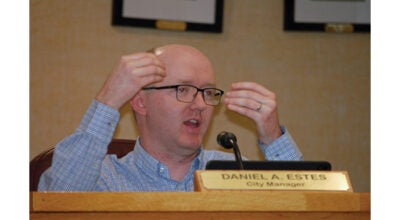Five county schools highlighted in behavioral program
Published 9:17 am Friday, January 31, 2020

- Contributed Photo Several schools received honors in the RTI2B program, including Keenberg, Hunter and Cloudland Elementary. Happy Valley Middle and Unaka Elementary received distinctions as Schools of Recognition.
Five Carter County schools recently received honors as the state named them Models of Demonstration schools, but to Carter County Schools, such a distinction is only the beginning.
Special Education Director Terry Hubbard said the distinction is part of their new involvement in the RTI2B program.
“We partnered with UT and Ashley Smethers,” Hubbard said.
Smethers is an Educational Consultant at UT under the Tennessee Behavioral Support Project.
The five schools include Hunter Elementary and Keenburg Elementary winning the Silver award, Cloudland Elementary receiving the Bronze award, and Happy Valley Middle and Unaka Elementary receiving the Schools of Recognition distinction.
The distinction, Hubbard said, relates to how the schools respond to and care for behavioral systems and interactions among their students.
“When you look at our improvement plan, chronic absenteeism is a big problem,” she said. “Most of that falls under behavior.”
She said the program will focus less on punishment and more on getting the students the help they need. This training will include focus on ACEs, or adverse childhood experiences, and it will train teachers and faculty to better recognize and assist with these issues in their student populations.
For example, if a child has a troubled home environment, they may lash out during school. Rather than punish the child for a behavior whose source lies outside the classroom, educators will be better equipped to work with the student to find a better solution.
“It is going to help their academics and help develop the child into the person they need to be,” Hubbard said.
This involvement will feature different teams depending on the school. For example, each elementary school will have its own team, while all four high schools will fall under one team due to their similarities. All of these teams of school officials will receive guidance from Hubbard and Smethers.
These teams will start out with principals and assistant principals, but may expand later as the program evolves.
Hubbard said training for this program will begin in March, with the new program taking flight when students return to school in August.
If the faculty in a school are better able to help their students succeed, Hubbard said the school’s climate as a whole can change for the better.
“When we find solutions, we will help the school environment,” Hubbard said.
In addition to helping the teachers, she said the program will also provide hope for struggling students as well.
“We want them to know there is help here,” Hubbard said.





